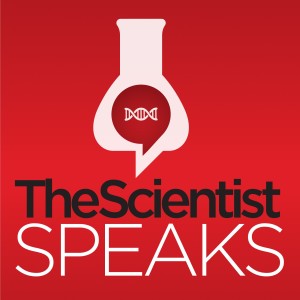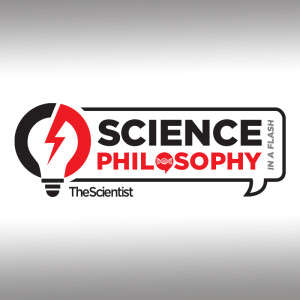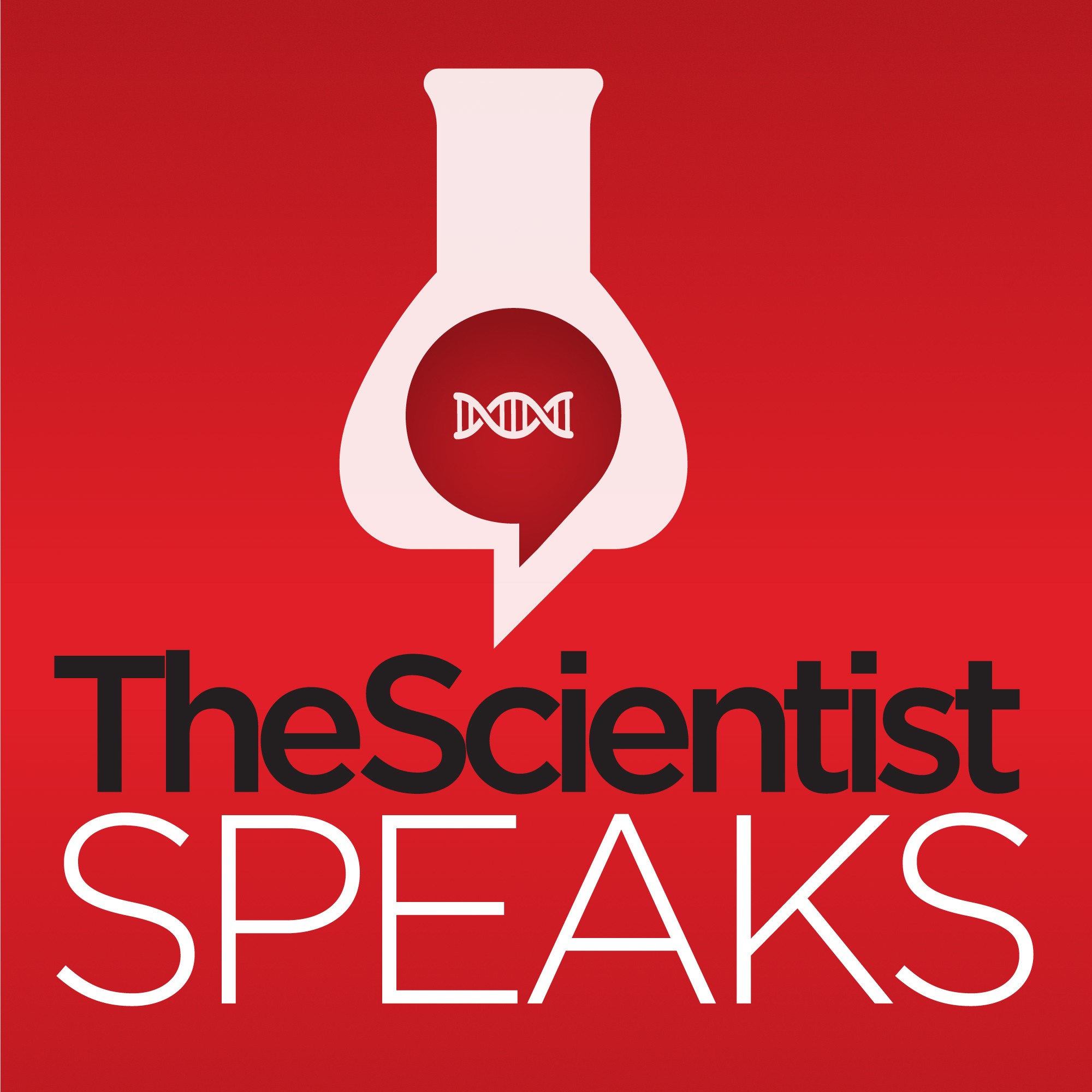Episodes

Wednesday Apr 30, 2025
All the Feels: The Emerging Neuroscience of Gut Touch
Wednesday Apr 30, 2025
Wednesday Apr 30, 2025
Deep within the gut’s epithelial layer are specialized sensory cells that convert mechanical stimuli to electrical signals and convey this information to nerve cells. As researchers home in on the basic mechanisms of gut touch, the concept of gut feeling is taking on new significance and providing hope for the millions of people living with gastrointestinal disorders.
In this episode, Iris Kulbatski from The Scientist spoke with Arthur Beyder, a gastroenterologist and biomedical engineer at the Mayo Clinic to learn more about his team’s research on the emerging neuroscience of gut touch.
The Scientist Speaks is a podcast produced by The Scientist’s Creative Services Team. Our podcast is by scientists and for scientists. Once a month, we bring you the stories behind news-worthy molecular biology research.

Wednesday Feb 26, 2025
From Development to Regeneration: The Power of Bioelectricity
Wednesday Feb 26, 2025
Wednesday Feb 26, 2025
Bioelectrical gradients guide embryonic development by creating an electrical scaffold for tissue and organ growth. Researchers harness the power of bioelectricity to devise strategies for regenerating various tissues, including promoting brain recovery after stroke.
In this episode, Iris Kulbatski from The Scientist spoke with Paul George, a physician scientist in the Department of Neurology at Stanford University, to learn more about his team’s research on bioelectricity for stroke recovery.
The Scientist Speaks is a podcast produced by The Scientist’s Creative Services Team. Our podcast is by scientists and for scientists. Once a month, we bring you the stories behind news-worthy molecular biology research.

Wednesday Dec 18, 2024
Circumventing Cancer Resistance
Wednesday Dec 18, 2024
Wednesday Dec 18, 2024
Traditional and new cancer therapies often become stymied due to tumor resistance, but why resistance arises and how to avoid it remain important questions in the cancer research field. To uncover the ways tumors form, adapt, and ultimately resist treatment, scientists investigate how genetic mutations arise and drive cancer cell evolution.
In this month’s episode, Deanna MacNeil from The Scientist spoke with Bishoy Faltas, an associate professor of medicine, and cell and developmental biology, and chief research officer of the Englander Institute for Precision Medicine at Weill Cornell, to explore bladder cancer evolution and treatment resistance.
The Scientist Speaks is a podcast produced by The Scientist’s Creative Services Team. Our podcast is by scientists and for scientists. We bring you the stories behind news-worthy molecular biology research.

Wednesday Nov 20, 2024
Advances in Cell Therapy for Restoring Vision
Wednesday Nov 20, 2024
Wednesday Nov 20, 2024
Retinal neurons derived from human stem cells are a promising source of replacement cells for regenerating damaged or diseased retinas. As scientists progress toward translation of cell therapies for restoring vision, they encounter challenges, including how to deliver the cells, ensure that they integrate appropriately with host tissue, and enable proper function after transplantation.
In this episode, Iris Kulbatski from The Scientist spoke with Deepak Lamba, a distinguished scientist in the department of immunology and regenerative medicine at Genentech and an associate adjunct professor at the University of California, San Francisco, to learn more about how advances in cell culture models and associated technologies help researchers progress towards retinal cell therapy.
The Scientist Speaks is a podcast produced by The Scientist’s Creative Services Team. Our podcast is by scientists and for scientists. Once a month, we bring you the stories behind news-worthy molecular biology research. This month’s episode is sponsored by Bio-Rad.

Thursday Oct 31, 2024
Smelling Illness: Volatile Organic Compounds as Neurological Disease Biomarkers
Thursday Oct 31, 2024
Thursday Oct 31, 2024
Early diagnosis and treatment of Parkinson’s disease is critical to slowing its progression. Long before neurological symptoms appear, patients exhibit early signs, some of which are associated with specific chemical scent signatures known as volatile organic compounds. Researchers study these as early biomarkers of disease for future diagnostics applications.
In this episode, Iris Kulbatski from The Scientist spoke with Drupad Trivedi, a University of Manchester biomedical researcher and lecturer in analytical and measurement science, to learn more about how fatty skin secretions in Parkinson’s disease and one woman’s sensitive nose may lead to early detection and intervention.
The Scientist Speaks is a podcast produced by The Scientist’s Creative Services Team. Our podcast is by scientists and for scientists. Once a month, we bring you the stories behind news-worthy molecular biology research.

Wednesday Sep 25, 2024
Understanding the Role of Autophagy in Infectious Disease
Wednesday Sep 25, 2024
Wednesday Sep 25, 2024
Just like people declutter their homes to prevent the accumulation of broken or unwanted items, cells use autophagy to maintain homeostasis. This essential cleaning process enables them to capture and degrade unnecessary or dysfunctional macromolecules, such as damaged organelles, protein aggregates, and microbial pathogens. As a result, autophagy is a fundamental defense mechanism employed by cells to control and clear viral infections.
In this episode, Charlene Lancaster from The Scientist spoke with Josephine Thinwa, an assistant professor in the departments of internal medicine and microbiology at the University of Texas Southwestern Medical Center, to learn more about the importance of autophagy in mitigating viral infections and how understanding this process could help physicians treat a rare neurodevelopmental disorder.
More on this topic: Macrophages Curtail Tuberculosis
The Scientist Speaks is a podcast produced by The Scientist’s Creative Services team. Our podcast is by scientists and for scientists. Once a month, we bring you the stories behind news-worthy molecular biology research.

Wednesday Aug 28, 2024
Linking Fasting to Health and the Gut Microbiome
Wednesday Aug 28, 2024
Wednesday Aug 28, 2024
Gut microbes affect humans in many ways, including altering the gastrointestinal tract’s function and influencing a person’s body weight, and the nutrients that people ingest can affect the microbiome. Researchers now ask how popular weight loss strategies involving calorie restriction change the bugs in our guts and human health overall.
In this episode, Niki Spahich from The Scientist spoke with Alex Mohr, a postdoctoral fellow in the Biodesign Center for Health Through Microbiomes at Arizona State University, about his work comparing the effects of calorie restriction versus intermittent fasting with protein pacing on the gut microbiome, weight loss, and other health indicators.
More on this topic https://www.the-scientist.com/you-are-when-you-eat-71487
The Scientist Speaks is a podcast produced by The Scientist’s Creative Services Team. Our podcast is by scientists and for scientists. We bring you the stories behind news-worthy molecular biology research.

Wednesday Jul 31, 2024
Catch Me If You Can: Sequencing Screens for Rare Disease Genes
Wednesday Jul 31, 2024
Wednesday Jul 31, 2024
Rare diseases often remain undiagnosed due to unknown etiologies. In recent years, researchers have made headway in characterizing the molecular causes of rare diseases thanks to progressively powerful sequencing technologies, such as whole genome and exome sequencing.
In this episode, Deanna MacNeil from The Scientist spoke with medical geneticist and chair of the department of pediatrics at Boston Children's Hospital, Wendy Chung, to learn how the rare disease field has evolved alongside advances in next generation sequencing.
Scans of Sundry Variant Types Uncover Autism-Linked Genes
The Scientist Speaks is a podcast produced by The Scientist’s Creative Services Team. Our podcast is by scientists and for scientists. We bring you the stories behind news-worthy molecular biology research. This month’s episode is sponsored by Velsera.

Wednesday Jun 26, 2024
Organoids in Space: The Next Frontier
Wednesday Jun 26, 2024
Wednesday Jun 26, 2024
Building miniature brains may sound like a page out of a science fiction novel, but fact is indeed stranger than fiction. Researchers around the world grow brain organoids—3D miniature brains—to better understand brain development, aging, injury, and other disorders, as well as to test new treatment strategies. Some scientists take brain building to the next level by launching their brain organoids into outer space.
In this episode, Iris Kulbatski from The Scientist spoke with Alysson Muotri, a University of California, San Diego professor and Stem Cell Program director to learn more about how microgravity affects the cellular and molecular biology of brain organoids and how these discoveries can improve human health.
The Scientist Speaks is a podcast produced by The Scientist’s Creative Services Team. Our podcast is by scientists and for scientists. Once a month, we bring you the stories behind news-worthy molecular biology research. This month’s episode is sponsored by ACROBiosystems and Molecular Devices.

Saturday Jun 01, 2024
Saturday Jun 01, 2024
As a maternal-fetal immunologist at the Washington University School of Medicine, Nardhy Gómez-López investigates the immunobiological pathways that underlie pregnancy complications. Having trained and researched across the globe alongside caring and curious physicians, Gómez-López became hooked on perinatal immunology research. Motivated to help solve the prevalent problem of preterm birth, she currently looks at labor and birth, also called parturition, through a basic research lens.
In this Science Philosophy in a Flash podcast episode, The Scientist's Creative Services Team spoke with Gómez-López to learn more about her recent work investigating cellular changes in the maternal-fetal interface during parturition and what motivates her clinically collaborative research perspective.
To learn more about Gómez-López’s research, check out this article.
Science Philosophy in a Flash is a mini podcast series produced by The Scientist’s Creative Services Team. In this series, we highlight researchers’ unique outlooks on what it means to be a scientist.

